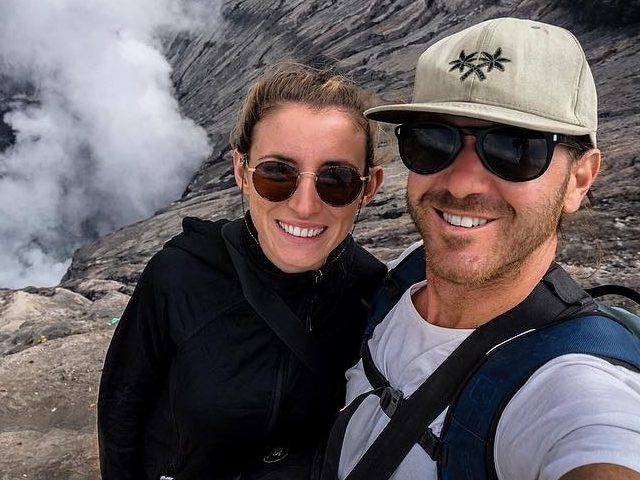A pair of Australians now being held in a notorious Tehran prison have been identified as travel bloggers who were reportedly arrested for flying a drone without a licence.
Jolie King, a building designer, and Mark Firkin, an Australian construction manager, were named by Persian-language broadcaster Manoto TV.
The pair left Perth, Western Australia, in June 2017 by off road vehicle bound for the UK, planning to travel for two years driving across 36 countries. They have been documenting their travels on Instagram and Youtube with a stated aim of going to countries less likely to fall on the average traveller’s radar due to unsympathetic media coverage.
“Our biggest motivation behind making the vlogs is to hopefully inspire anyone wanting to travel, and also try to break the stigma around travelling to countries which get a bad wrap (sic) in the media,” they said in a post on crowd-funding platform Patreon.
The young British-Australian woman and her Australian partner were arrested 10 weeks ago, as Breitbart News reported.
King and Firkin have frequently used a drone in photos and videos published of their travels through Australia, Asia and the Middle East, with nearly 19,000 people following their adventures on their Instagram page.
“Our families hope to see Mark and Jolie safely home as soon as possible,” their families said in a statement Thursday, issued by the Australian Department of Foreign Affairs and Trade.
“We have no further comment to make at this stage and ask that the media respects our privacy at this difficult time.”
There was no immediate comment on the matter either from Iranian officials, nor state media.
Tensions as Iran Detains Two British-Australian Tourists https://t.co/GQ74pNMBGT
— Breitbart London (@BreitbartLondon) September 11, 2019
Cases involving dual nationals typically end up in closed-door hearings of Iran’s Revolutionary Court, where former detainees say they had no opportunity to defend themselves against spying charges or offer evidence.
Analysts and family members of dual nationals and others detained in Iran long have said hard-liners in the Islamic Republic’s security agencies use the prisoners as bargaining chips in negotiations with the West. A U.N. panel in 2018 described “an emerging pattern involving the arbitrary deprivation of liberty of dual nationals” in Iran, which Tehran denied.
Deals can be made with Iran for the release of prisoners however this often involves the transfer of large amounts of cash to the Islamic republic.
Just such a prisoner exchange was brokered by former U.S. President Barack Obama in January 2016 that freed Washington Post journalist Jason Rezaian and three other Iranian-Americans. It saw the U.S. make a $1.7 billion cash delivery to Iran the same day the hostages were allowed to walk free.
The Obama administration defended the payment to Iran as a “a very good deal for U.S. taxpayers.”
It’s unclear what Australia would offer – if anything – in return for the release of the pair of its nationals languishing in the infamous Evin jail in the capital of Tehran.

COMMENTS
Please let us know if you're having issues with commenting.